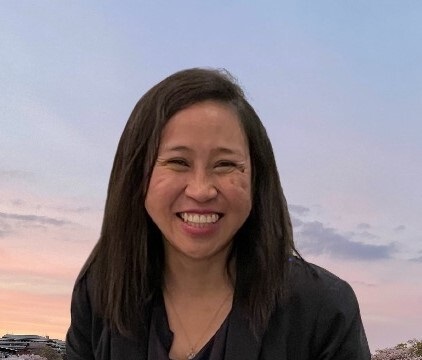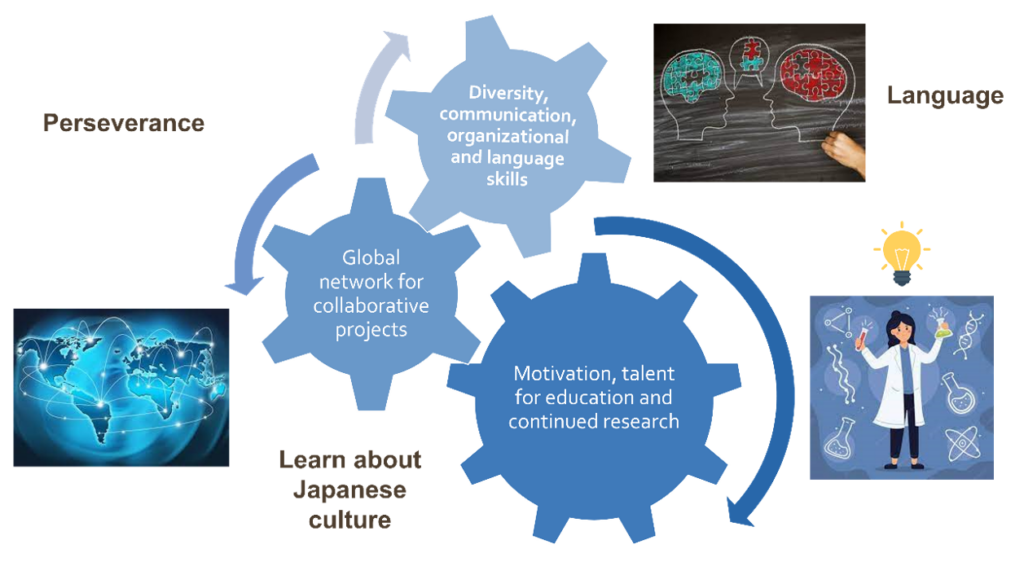Dr. Harifara Rabemanolontsoa, Program-Specific Assistant Professor, Kyoto University has shared her personal and professional journey with the audience at the 3rd IApF Africa-Japan University Exchange Meeting on the 16th February 2024.
京都大学大学院エネルギー科学研究科特定助教であるラベマヌルンツ ハリファラ フェヌハシナ先生が、2024 年2 月16 日に開催された「第3回日本・アフリカ大学教育交流ミーティング」において、アフリカの大学生と教員へのメッセージとして、ご自身の日本への留学の経験を語ってくださいました。その時のメッセージをハリファラ先生ご自身がまとめてくださいました。

Dr. Harifara Rabemanolontsoa
Program-Specific Assistant Professor
Graduate School of Energy Science
Kyoto University
The presentation titled “Journey through Japanese Academia: Studying, Researching, and Landing an Educational Role” by Dr. Harifara Rabemanolontsoa outlines her academic journey and professional experiences in Japan, Madagascar, and beyond.
Originally from Madagascar, Dr. Rabemanolontsoa shares her educational path and her transition to Japan for higher studies. She obtained a PhD in Energy Science from Kyoto University and participated in training at Warwick University in collaboration with Vitae and the United Kingdom Energy Research Centre (UKERC). Despite initial setbacks, including failing her first attempt at the MEXT (Ministry of Education, Culture, Sports, Science and Technology) scholarship, she eventually succeeded and established a career in Japan. Her academic journey involved intensive language learning and adapting to life as a student.
In her research, she focuses on biomass chemistry, bioethanol production, and biorefinery technologies aimed at sustainability and reducing global warming. Her work includes biomass conversion to biofuels and biochemicals and synthesizing biomaterials from wood. Currently, she serves as a program-specific Assistant Professor at the International Advanced Energy Science Research and Education Center (IAESREC), Graduate School of Energy Science, Kyoto University, and is a member of the management board of Sciencescope, an association for French-speaking students and researchers in Japan. Her career is marked by significant involvement in international collaboration and teaching responsibilities at Kyoto University.
Dr. Rabemanolontsoa also touches on personal challenges, including a break from work due to the medical condition of her premature child. She emphasizes the excellence of the Japanese healthcare system, noting that most medical expenses related to her baby were covered by insurance. After her child recovered, she resumed her career, holding positions as a Senior Researcher and Assistant Professor, contributing to academia and industry collaborations. She mentions support from the Kyoto University Gender Equality Promotion Center, which provides competitive grants to hire research assistants for professors facing personal challenges, such as caregiving. She has received these grants multiple times, helping her maintain a stable work-life balance. The presentation concludes by emphasizing the importance of perseverance, language learning, cultural understanding, and building a global network for collaborative projects. Learning Japanese is essential for grasping the culture and navigating its communication nuances. Maintaining connections with friends and professionals, such as through New Year’s cards or messages, is an effective way to nurture a vibrant network.

Dr. Rabemanolontsoa acknowledges the support of mentors, including Professor Emeritus Shiro Saka and Professors Haruo Kawamoto, Hiroshi Kamitakahara, and Benjamin McLellan, as well as Associate Professors Eiji Minami and Mariko Yoshioka at Graduate School of Energy Science. She also recognizes funding programs like the Advanced Low-carbon Research and Development Program (ALCA) by the Japan Science and Technology Agency and collaborations with companies such as Kansai Technos and Daicel Corporation, highlighting the significance of continuous motivation in education, research, and partnerships. Additionally, she discusses her social and volunteer activities, hobbies, and passion for outdoor pursuits, reflecting a comprehensive professional and personal life.
